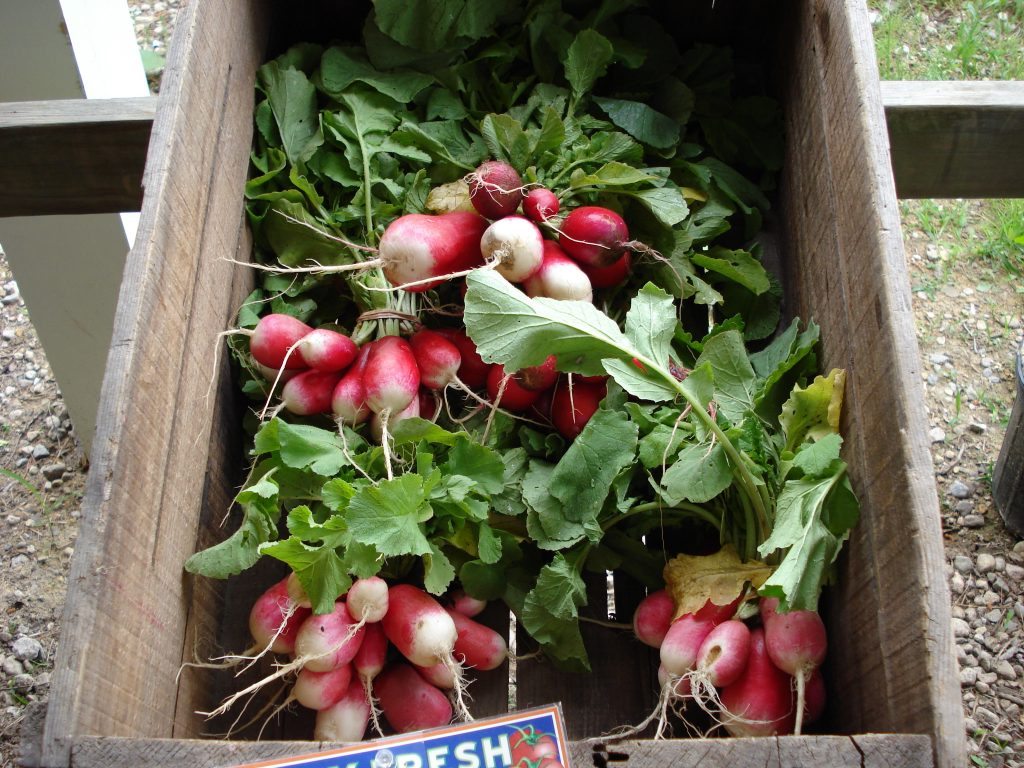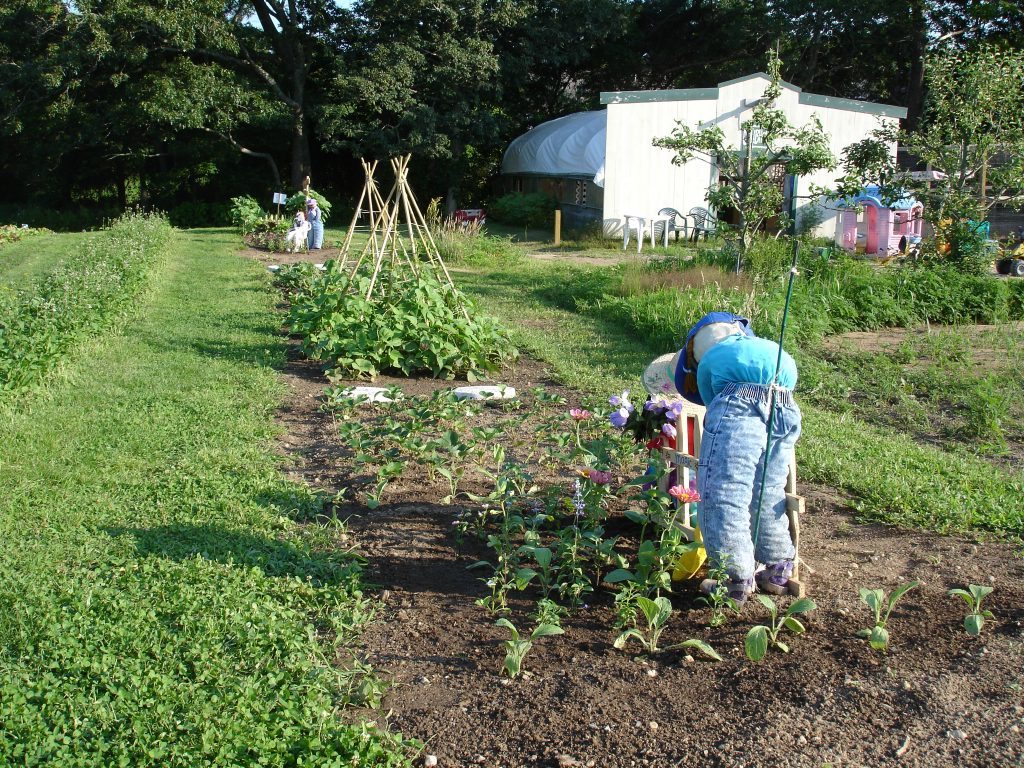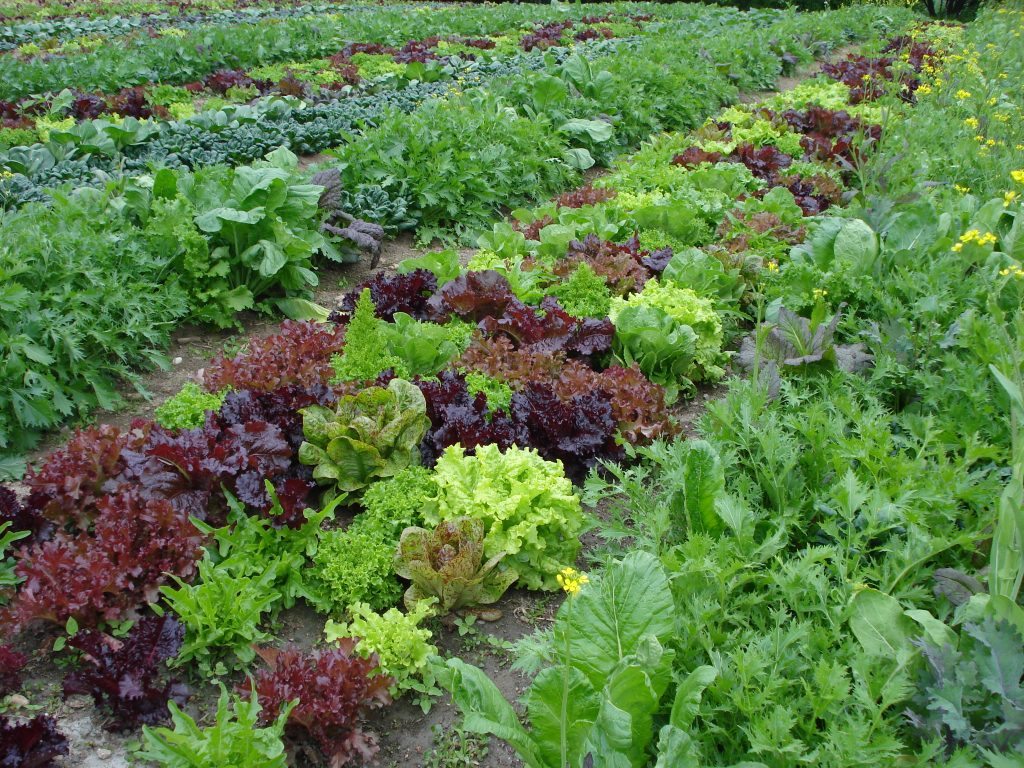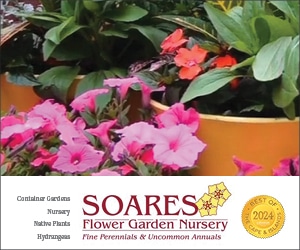
Start your own garden!
Cape Cod Life / April 2016 / Home, Garden & Design, People & Businesses, Recreation & Activities
Writer: Nancy White
Start your own garden!

Cape Cod Life / April 2016 / Home, Garden & Design, People & Businesses, Recreation & Activities
Writer: Nancy White
Cape Cod farmers offer 10 tips to help you get started

Imagine it’s a late summer afternoon. Outside, a garden in the backyard overflows with ripe tomatoes, fragrant basil, bountiful salad greens and zucchini. With a basket in hand, it’s a simple and gratifying task to meander through the garden to pick a few lush vegetables for the night’s dinner.
For many, such a vision is the inspiration behind creating a home garden. Those in the know say working in the dirt, getting some fresh air outdoors, and growing one’s own food are just a few of the benefits of having your own garden. If you’re willing to put in a little sweat equity, a bountiful garden may be your reward.
Ready to start putting down roots? For this article, CAPE COD LIFE asked three local farmers to share some tips for getting your home garden growing.
1. Location, location, location
“You want to find a spot that receives as much sun as possible, as almost every food crop prefers full sun,” says Lindsay Cook, who co-owns NewFarm, a micro-farm and garden supply store in Orleans, with her husband, Casey. It’s also advisable to select a location that drains well and is not too close to coniferous trees which make the soil acidic.
2. Consider convenience
Because a successful garden requires regular attention and watering, Justin Cifello, field manager at Bay End Farm in Bourne, advises aspiring green thumbs to ensure the plot they choose can be easily watered. “It’s okay to sacrifice a little sunlight,” he says, “for a little more convenience.”
3. Prepare the soil for success
“The more love you can put into the soil, the better,” says Cifello. He recommends gardeners-to-be purchase compost or manure, or start their own compost pile with food scraps. He also suggests adding an organic mulch—leaves, natural wood chips and seaweed can do the trick—at the top of the garden bed.
If the ground soil is not quite right—perhaps the area is very sandy or drains poorly—don’t abandon your gardening hopes. Raised beds, where soil is placed in a large, typically wooden box above ground; or potted gardens, where plants are grown in containers on a porch or in the yard, are also alternatives.
4. Diversify your plant portfolio
Even a small garden benefits from a wide range of plantings, not only to grow a colorful salad but for other practical reasons. “A diverse garden is less likely to be heavily damaged by pests or diseases,” Cook says, “because most pests and diseases focus on certain crops and/or varieties of crops rather than a wide variety.” Consider a mix of greens, herbs, fruit, root vegetables, and vine vegetables to ensure a good harvest.
5. The hardier, the better
Choose hardy plants that grow relatively easily, such as thyme, oregano, basil, parsley, dill, cilantro and other cooking herbs; tomatoes; lettuce and other greens; radishes; squash; and cucumbers. While diversity is desirable, gardeners should also take care to give each plant enough room to grow, and not to overplant a garden. Cifello says a common mistake is to plant too much, and not be willing to weed out any struggling plants. “There’s a lot of tough love in gardening,” Cifello says. “At the farm, we always plant more than we need, then select the best ones to survive.”
6. Know your plant source
First-time gardeners can start plants from seeds or buy transplants from a farm or garden store, but one should be mindful of a plant’s origins. “It’s important where you buy your plants,” says Ron Smolowitz, owner of Coonamessett Farm in Falmouth. “Many of the big box stores use growth inhibitors on their plants. Know your source well.”
7. Don’t plant everything at once
Big crops like potatoes, tomatoes, onions, squash, peppers and pumpkins are planted once and harvested at the end of the season. Many other crops, such as lettuce, carrots, radishes and spinach, can be planted weekly, or biweekly, because they have shorter growth cycles and can be harvested regularly. “For a small garden,” Cifello says, “plan to have three to four heads of lettuce per week.”
8. Give your garden a little TLC
Watering, weeding and monitoring for pests are important aspects of tending a garden and should be done on a regular basis. Watering in the daytime (morning or afternoon) is best, Cifello says.
Bonus: simply devoting 15 minutes a day to the garden will make a big difference to both the success of the garden, and according to Cifello, the gardener’s overall well-being. “Having contact with the dirt hugely reduces stress, increases happiness, and exposes us to non-harmful bacteria,” Cifello says.
9. Enjoy the process
Like anything worth doing, gardening involves a commitment, but Cook says the key is to take pleasure in the experience. “Gardening should not be stressful,” says Cook, who adds that first-timers should prepare themselves for some amount of failure. “A garden is an ecosystem and ecosystems are messy,” she says. “Your garden is a success if it makes you feel good to be in it.”
10. Reap the rewards
Finally, the benefit any gardener can enjoy is the simple joy of nurturing a plant from a tiny seed to, for example, a full-grown tomato, and then savoring the taste of local plucked-off-the-vine freshness. It’s an incomparable experience, Cook says. “Everybody knows that homegrown tomatoes taste so much better than their store-bought counterparts that they really shouldn’t even be considered the same food!”
Inspired to get out in the garden? Here’s some information on six Cape and Islands businesses that offer a variety of gardening and landscape goods and services.
Scenic Roots Garden Center
Open daily throughout the year, this flourishing family-owned garden center offers many gardening and yard-maintenance goods, from plants and flowers to soil, mulch and gloves. The company also caters to bird-lovers, stocking a selection of feeders, suet and seed. Ornithologists unite—Scenic Roots is the place for you!
349 Route 6A, East Sandwich
508-888-0044
scenicrootsgardencenter.com
Hyannis Country Garden
This garden center offers seemingly everything a gardener could need, from plants and flowers, to fertilizers and outdoor decorations. Staff will also ensure the plants you buy are correctly potted and soiled, and will offer additional advice based on where the plants are to live. There’s even an aquatics team available to consult with regarding garden ponds and other water features.
380 West Main Street, Hyannis
508-775-8703
hyanniscountrygarden.com
Pine Tree Nursery and Landscaping
In addition to a robust assortment of trees, shrubs, plants and berries, Pine Tree Nursery and Landscaping offers garden consultation and design services as well as masonry and materials for patios, walls and walkways. Also, don’t miss Pine Tree’s free spring workshops, which include “Pruning Mysteries Solved” (April 25), “Dividing Perennials” (May 2), and “Creating a Cutting Garden” (June 10).
200 Route 137, South Chatham
508-432-8878
pinetreenursery.com
Saint Aubin Garden Center
This Outer Cape company carries needle evergreens and other trees, shrubs, grasses and more. Saint Aubin also offers organic gardening products, mulch and soil, and landscape design materials including clamshells and native stones. Don’t miss Forsythia’s Gifts—the on-site gift shop—for unique bath, body and décor products.
4850 Route 6, Eastham
508-255-9090
saintaubins.com
Bartlett’s Farm
Bartlett’s Farm is a popular Nantucket hotspot for pretty much everything. The historic farm sells plants, flowers, shrubs and many other gardening products, and savory soups and sandwiches are sold in Bartlett’s Market. The farm also hosts gardening workshops, such as “Plant Propagation” (April 16), and an island Easter egg hunt.
33 Bartlett Farm Road, Nantucket
508-228-9403
bartlettsfarm.com
Middletown Nursery
Searching for snapdragons, sunflowers or Swiss chard? On the hunt for hellebore, hosta or hydrangea? Browsing for birch trees, butterfly bushes or a bevy of banana plants? If so, Middletown Nursery may be the choice for you. This company on the Vineyard offers a colorful collection of trees, shrubs, flowers and succulents—and many fascinating tropical plants.





